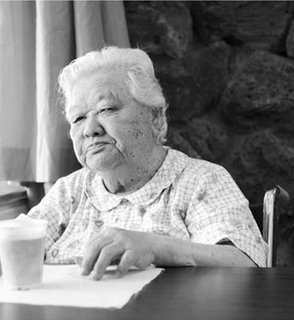
Asked recently by the LEAF National Committee to complete a survey that included a recommendation of an issue warranting study by this national organization working in the area of women's legal issues, I suggested the issue of false self-employment. This is a growing issue for workers, affecting far more women workers than men, and one where women have found it difficult to obtain reliable information.
In
Social Determinants Of Health: Canadian Perspectives, published by Canadian Scholars' Press in 2004, Dianne-Gabrielle Tremblay's analysed the effect of globalization upon employment security.
She looks at the "new boundaryless careers" — no longer based on a vertical promotion ladder but instead nomadic with horizontal movement and new forms of organization and collaboration: team work, networks and virtual communities.
While this flexibility may be positive for certain sectors, she writes, it entails "precariousness, lack of stability and the lack of a career for others" as well as "`false' self-employment, that is those who are dependent on one or more order-givers."
The whole concept of "job security" is in doubt, she suggests, and this is a major factor in health and well-being. Furthermore, she notes, "This is especially the case among Canadian women."
In the same year, 2004, Dr. Karen Hughes, author of
Female Enterprise in the New Economy published by University of Toronto Press presented to the Canadian Standing Committee on the Status of Women. She identified false self-employment as a growing problem in which workers had neither the flexibility and empowerment of true self-employment nor the security and benefits of an employee entitled to the protection of Employment Insurance and CPP contributions. And when women have worked under a false self-employment arrangement and lose their jobs or retire, they are poorer than those women who had an employer who contributed to EI and CPP as required. So this really is an issue affecting women's economic health and equity in our society.
I'm surprised that two years later, it is hard to find a lot of information about false self-employment while it is a practice that continues to grow in an increasingly globalized marketplace.
While more than half of self-employed workers report that they are involuntarily self-employed and would prefer employment, it's fair to note that true self-employment works well for a lot of women. They are able to set their own hours, accept as many or as few jobs as they like, work flextime, work from home in some cases, while they are able to take appropriate tax deductions for their business expenses: tools, office, car and travel costs. Taking these deductions, they can invest in their own RRSP plan and also build savings to offset periods of shortage of work. This is a viable work choice for these workers.
How does false self-employment differ from this scenario? False self-employment occurs when the employee answers a job ad and the employer says, "you understand this is contract work?". This can be confusing. Many prospective employees might think that this only refers to the time period of the contract. That this is shortterm work. However the employer will then use meaningless codewords like "service agreement". What the employee is being told--whether they understand it or not--is that if hired they will be expected to perform like an employee (work regular hours in the employer's place of business, use company equipment, not accept work from other employers, be subject to company rules and evaluation procedures, etc.) BUT they will not have income tax deducted from their paycheque, no EI benefits will be paid on their behalf, and no CPP contributions will be made.
The worker may be misinformed that this is a legal practice or convinced that "everyone is doing it" in a particular business sector. The worker may be misinformed by the employer about the way that a lack of employee status could be of benefit to the worker--strategies that actually involve tax fraud and liability for the worker.
The employer engaging in this employment practice is breaking Canadian tax law, plain and simple.
The pamphlet that outlines the difference between an employee and the self-employed is available for download
here. In brief summary: if you work more than 50% of your paid work hours in the employers' premises, if you use their tools, if you report to a boss, if you can't accept other contracts, if you can't determine your own hours of work, if you are paid a wage rather than taking profits from your business, if you can't hire someone else to do your job for you (sub-contract) then--you are most-likely an employee under law. If you are a Canadian worker and believe that you are an employee but your employer is classifying you as self-employed to avoid paying benefits you can file
a form to request that Canada Revenue conduct an investigation to determine your employment status.
Who are the employers who are engaging in this shoddy practice--dodging paying their fair share towards the social safety net in our society? It's surprising but a number of non-profits and arts organizations supported in a large part by government grants are among the worst offenders. There seems to be a mindset there that because their cause is so important, it's okay to treat workers in a cavalier fashion, and that any worker who wants even the minimal protection afforded Canadian workers is somehow selfish and less-dedicated to whatever "cause" the organization supports. Or, in some cases, the organization's Board of Directors has a misguided notion that they will be less financially responsible if they avoid having an employer relationship with a lone administrator or general manager of a small non-profit. Boards may believe that they have less financial risk by mis-representing the employment relationship. Sometimes there is a belief that it will be easier to terminate a worker if unsatisfactory or if a grant ends.
But what's the truth?
First, organizations who espouse high ethical principles should start with their own workers and contribute to the overall health of society just on principal. But pragmatically, when organizations or companies misrepresent the employment status of workers they are not helping themselves but rather exposing themselves to financial risks. If it is found that a worker's status has been represented, the employer can be forced to pay both the employee and employer's share of all remittances owed to the Receiver General for the employment period in dispute. Rather than skinting the government and saving money, the employer may have to pay double. In addition, any action the employer takes that may be in violation of provincial labour law can be liable to penalty if the Employment Standards branch rules that the worker's status was that of an employee under law. Companies have to ask themselves whether fooling some workers some of the time into believing that they have no rights if they sign a self-employed contract (while working as employees) is worth the financial risks, potential bad publicity and plain bad karma.
But what if the worker wants to represent their work as self-employed?
Certainly it might be very tempting for low-income earners to want to avoid paying their share of income tax and benefit contributions. But is it fair of employers to lure gullible, cash-strapped and ill-informed workers into a dangerous deception? If these workers fail to pay taxes at all, hoping to slip under the radar, they are liable to huge fines and back taxes at a future time. If the worker misrepresents themselves as self-employed and claims self-employed deductions such as computer, office supplies, home office and car expenses, they will have a huge problem supporting these deductions when it becomes clear that they spent their full work day in the employer's premises, using the employer's equipment. The worker is forced to lie through their teeth and take all the risks of that in order to gain the benefits of the self-employed status that the employer has falsely assigned to them. Not only is the employer lying but the worker is tempted, even coached by some employers, to lie in order to avoid a crushing tax bill. Should the worker refuse to lie, pay their taxes as the employed person that they were under the definition of Revenue Canada--while being unable to produce a T-4 slip as required--alarm bells will ring and once again the employers who thought to avoid responsibility, cost and make their lives simpler--will find their lives suddenly very complicated.
I'd like to see LEAF and other women's and workers' rights organization make more information available on this subject and where warranted take employers to court. I see education as key because I believe that both employers and workers are very misinformed on this issue. When government-supported non-profits engage in this practice it seems doubly wrong. It's a case of biting the hand that feeds you. Provincial and federal governments are losing money for social programs when workers are forced into false self-employment. I'd like to see policies in place that require the re-payment of government grants by organizations who avoid their financial responsibilities to workers. I'd also like to see clear employment protections in place for workers who whistle-blow on employers engaged in employing workers while not affording them their legally required employment benefits.
I'd welcome emails from anyone facing this situation and I am considering ways of taking this issue forward politically. If there is any group out there already doing this, I'd like to know about it!
 "When it comes to a child's legal duties to a parent, the courts are scarily unclear" notes a recent NOW Magazine article .
"When it comes to a child's legal duties to a parent, the courts are scarily unclear" notes a recent NOW Magazine article .








